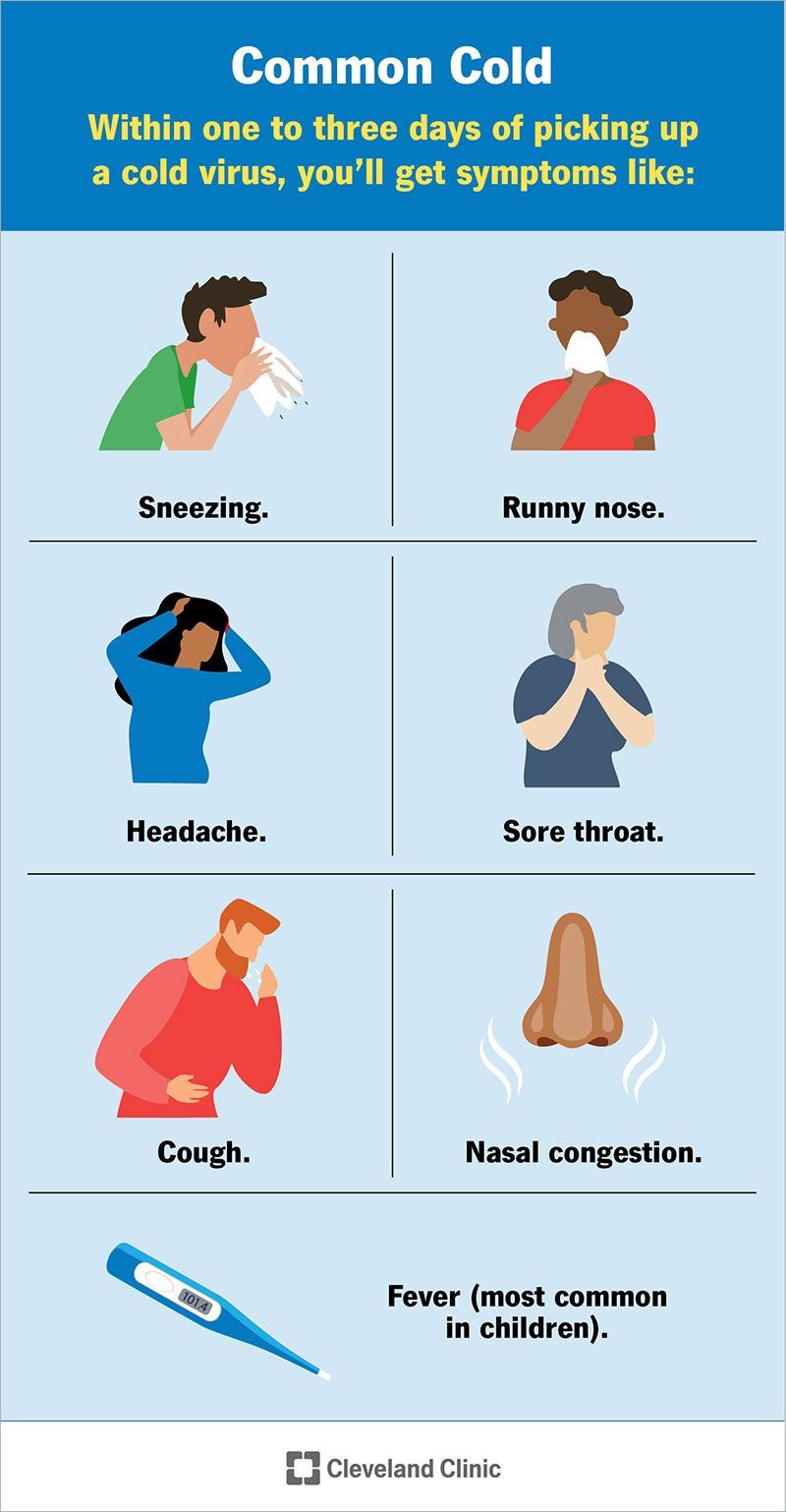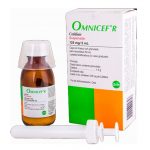
Contents
- 1 Common Cold: Early Signs and 4 Stages
- 1.0.1 What are the 4 different stages of a common cold?
- 1.0.2 What exactly is a common cold?
- 1.0.3 What can I take for a cold while breastfeeding?
- 1.0.4 What cold medicines are safe to take while breastfeeding?
- 1.0.5 What antibiotics are safe to take while breastfeeding?
- 1.0.6 What medicines to avoid while breastfeeding
- 1.0.7 What home remedies can you try to treat a cold?
- 1.0.8 From
Common Cold: Early Signs and 4 Stages
Other typical symptoms of a common cold include:
- Sore throat
- Runny nose
- Coughing
- Sneezing
- Headaches
- Body aches
- Fever (especially in children)
- Stuffy nose
Symptoms usually go away within 7 to 10 days. In people with weak immunity, asthma or other lung conditions such as bronchitis or pneumonia may develop.
What are the 4 different stages of a common cold?
A common cold may follow a certain pattern of progression, although not experienced by everyone who gets a cold.
The stages of a common cold are:
- Stage 1 (incubation period): The stage between infection by a cold virus and symptom development. This stage may last one to three days, although for some it may be as short as 10 to 12 hours.
- Stage 2 (appearance and progression of symptoms): Symptoms begin and reach their peak intensity. The symptoms of a cold generally peak one to three days. Common cold symptoms include sore throat, sneezing, cough, stuffy nose, runny nose (clear, watery discharge from the nose), feeling sick, headache, body ache, and fever. Fever is more common in children.
- Stage 3 (stage of remission): Marked by a decline and eventual fading of cold symptoms. Symptoms usually subside between 3 and 10 days. After two to three days of symptom appearance, the discharge from the nose may appear white, yellow, or green. This color change is normal and does not require antibiotics.
- Stage 4 (stage of recovery): The person feels normal and gets on their feet. Some lingering symptoms may occur, such as mild cough, stuffy nose, and scanty nasal discharge. These mild symptoms may last up to two weeks and can be managed with over-the-counter (OTC) medications and a healthy diet.
What exactly is a common cold?
The common cold, or viral rhinitis, is an upper respiratory infection caused by several types of viruses. It is one of the most common infectious diseases affecting humans. Over 200 types of viruses have been identified as causes of the common cold.
- Most colds are caused by rhinoviruses.
- Other common causes include coronavirus (COVID-19), adenovirus, and respiratory syncytial virus (RSV).
- Most people recover from a common cold within 7 to 10 days.
There are millions of cases of the common cold each year in the United States. It is a main reason for children missing school and adults missing work. Children are affected by the cold more commonly than adults who have an average of two to three colds each year.
One can avoid a cold by practicing good hygiene, such as frequent hand washing, avoiding close contact with sick people, and not touching the face with unwashed hands. Although most people catch a cold in winter and spring, it is possible to get a cold at any time of the year. There is no evidence that going out in cold weather increases vulnerability to catching a cold.
What can I take for a cold while breastfeeding?
If you are a nursing mom, what cold medicine can you take while breastfeeding?
If you are breastfeeding, be careful about what you put into your body, as it can enter your breast milk and be ingested by your baby.
While most cold medicines are safe to take while breastfeeding, make sure to:
- Check with your doctor.
- Determine the active ingredient in the medicine.
- Check the correct dosage amount.
- Be prepared to monitor your baby for any behavioral or medical changes.
Generally, the amount of medicine that enters your milk is much lower (about 5-10 times lower) than what your baby would be exposed to in the uterus.
However, because these drugs do enter your milk in small quantities, stick with the lowest possible dose needed to treat your symptoms and feed your baby first before taking the medicine to minimize any possible effects on your baby.
What cold medicines are safe to take while breastfeeding?
Cold medicines considered safe to take while breastfeeding include:
- Acetaminophen
- Ibuprofen
- Zyrtec (cetirizine)
- Nasal sprays that contain Afrin (oxymetazoline), Flonase, Nasacort (steroids), or plain saline
- Dextromethorphan (monitor your baby for any unusual drowsiness or decrease in appetite)
- Lozenges containing mild antiseptics, amylmetacresol, dichlorobenzyl alcohol, or cetylpyridinium
- Certain influenza antiviral medications, such as oseltamivir (follow your doctor’s prescription)
- Most cold and allergy relief eye drops
It is safe to get the flu vaccine when breastfeeding.
What antibiotics are safe to take while breastfeeding?
Antibiotics generally safe to take while breastfeeding include:
- Amoxicillin (for bacterial infections, such as strep throat or ear infections)
- Penicillin (for bacterial infections, such as strep throat or ear infections)
- Azithromycin (for bacterial infections, such as pink eye or bacterial bronchitis)
What medicines to avoid while breastfeeding
Medicines to be avoided while breastfeeding include:
- Codeine
- Zinc supplements
- Aspirin
- Combined cough and cold or cough and flu medicines, such as Benadryl or Robitussin (these contain decongestants, which may reduce milk supply and make your baby irritable and restless)
By clicking Submit, I agree to the MedicineNet’s Terms & Conditions & Privacy Policy and understand that I may opt out of MedicineNet’s subscriptions at any time.
What home remedies can you try to treat a cold?
One amazing characteristic of human milk is its adaptability. As mother and baby are exposed to bacteria and viruses, breast milk includes antibodies specific to those antigens, as well as disease-fighting substances that help prevent many common illnesses. A mother will pass antibodies to her baby through her milk, which can destroy bacteria in the infant’s gastrointestinal tract before they have a chance to make the baby sick.
If you are trying to treat your cold naturally, try the following home remedies:
- Steam: Inhale steam over a bowl of hot water for nasal congestion.
- Saline drops or nose sprays: Effective for nasal congestion.
- Water: Aim for at least 10 glasses (8-ounce glasses) of water per day to prevent dehydration.
- Honey and ginger: Naturally antimicrobial and decongesting agents. Add raw honey to ginger tea or consume as is.
- Garlic: Contains allicin, which has antibacterial, antiviral, and antiseptic properties.
- Chicken broth: Provides mild anti-inflammatory effects that may relieve upper respiratory infections.
For some mothers, taking medication while pregnant or breastfeeding can be concerning. It is important to balance staying healthy and decreasing your baby’s exposure to chemicals. When in doubt, call your doctor.
From
Cold and Flu Resources
- Cold and Flu Season in Your Area
- Cold and Flu Symptoms Across the U.S.
- Elderberry Health Benefits
Featured Centers
- What Are the Best PsA Treatments for You?
- Understanding Biologics
- 10 Things People With Depression Wish You Knew
Medscape Medical Reference
Medscape Medical Reference


